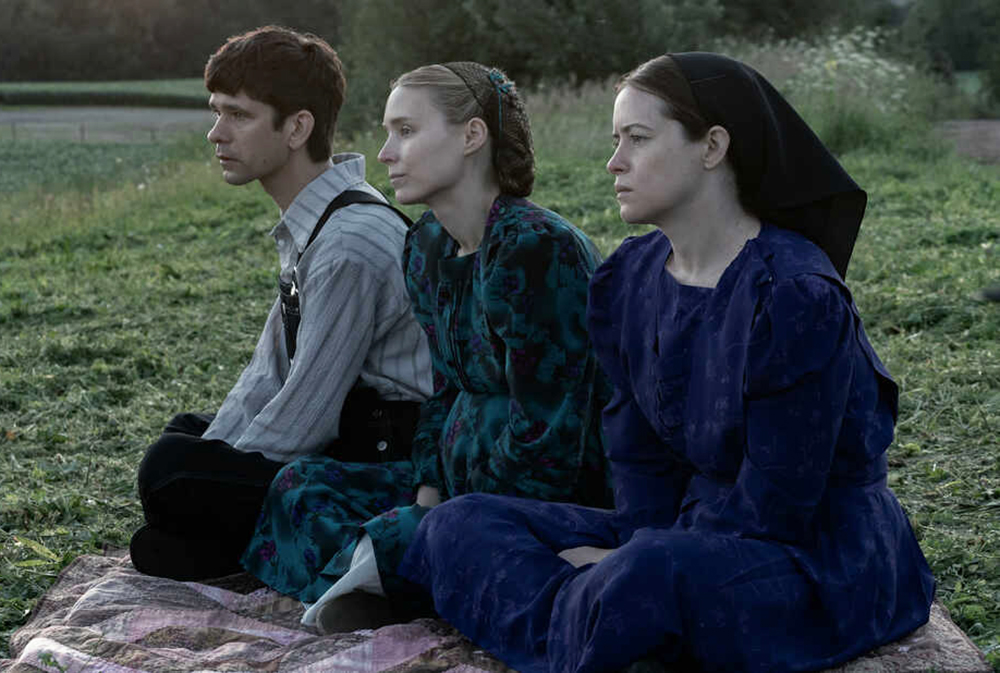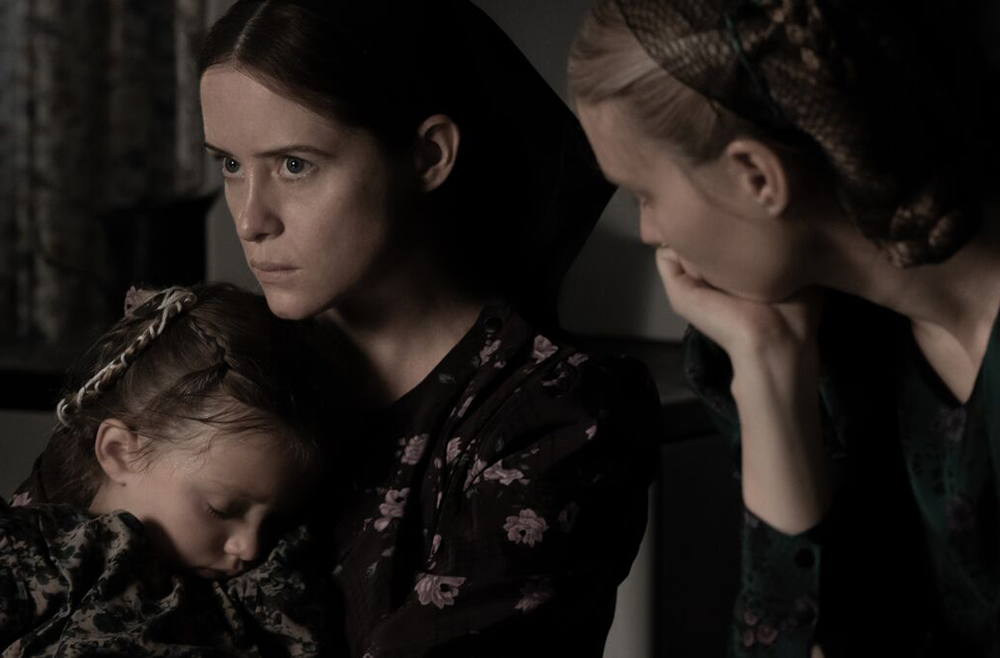There have been many films in the last couple years (and more coming) that are based on true events. “Women Talking” (written and directed by Sarah Polley, from Miriam Toews’ novel) is one of the better ones I’ve seen.
It’s a quiet film. There are no guns blazing, no violence (at least not on-camera) and a small amount of yelling. But the tension, fear, and rage boiling within the women of the film is palpable and powerful throughout.
Sexual Abuse and its Repercussions
In 2010, the women of a secluded Mennonite colony discover that several men in the colony (including some of their husbands) have been using cow tranquilizers to knock out and rape various women and young girls throughout the colony. The attackers are caught, arrested, and detained in a nearby city. The male elders and most of the other men in the colony set off on a two day journey to bail the rapists out of jail, telling the women that when they return, the women must forgive them. If the women refuse to forgive the rapists, they will be exiled from the colony.
With most of the men gone, the women, fed up with the continual sexual abuse and powerlessness, meet to discuss. They must decide between three alternatives: forgive the rapists when they return, leave the colony before they can be exiled, or stay in the colony and fight the men. It’s a decision that becomes much harder to make than they originally thought.

A good percentage of the film focuses on the women gathering to vote on a course of action. There’s then debating/arguing over a final decision when there’s a tie between two choices. These scenes feel very much like watching a play and the main characters are a varied lot.
Examining Differing Perspectives with Heartbreaking Effect
Ona (Rooney Mara) is pregnant after being raped. Despite everything that has happened to her, she remains even-tempered and focused. Salome (Claire Foy) is the most militant of the women. She’s enraged over her 4-year old daughter being raped, and wants to destroy every man in the colony. Mariche (Jessie Buckley) is regularly abused by her husband, and she’s as adamant about escaping the colony as Salome is about killing all the men in it. The three women make a fascinating triad of alternating viewpoints. Ona logically and emotionlessly thinks through the pros and cons of their actions. Opposite her, Salome is pure rage and instinct, and Mariche is a fusion of both women who sees the validity of both their approaches.
Greta (Sheila McCarthy), Scarface Janz (Frances McDormand), and Agata (Judith Ivey) are the elder women of the colony. They offer an interesting counterpoint to the more revolutionary younger women who have taken command of the situation. Janz is the most heart-breaking of the three women. She’s apathetic and considers the women’s hunger to change their situation just a silly nuisance.
A Wonderfully Gripping Tale
August (Ben Whishaw) is one of the few men left behind in the colony, and he’s an ally to the women. Since the women were never allowed to learn reading and writing, August takes notes and minutes during their meeting, and occasionally is on the receiving end of Salome’s rage. Whishaw reminded me so much of Anthony Perkins in “Pretty Poison” and “Psycho,” with his soft-spoken manner, nervous sweaty energy, and world-weariness. If there’s ever an Anthony Perkins bio film, Whishaw is the man to play him. As the women meet and August sits with them, his hand trembles as he jots down notes. At times he looks elated by their call to action, excited to be part of it all. At other times he looks like a trapped animal, as if he expects one of the women to drop an axe on him at any moment.

The film drives home how these women have had their dignity stripped away bit by bit over time, through draconian rules forbidding them to be educated and, as one of the women says, being treated worse than even the pets and livestock by the colony’s men. Director Sarah Polley and Cinematographer Luc Montpellier shoot the film in muted tones of grays. They fill every scene with an air of oppression and gloom, symbolic of the women’s suffering.
“Women Talking” is a film about women who have been suppressed their whole lives trying to take control of their destinies in 48 hours, and it’s a wonderfully gripping tale.
“Women Talking” is currently playing in theaters. It is unknown when the film will release to streaming.



